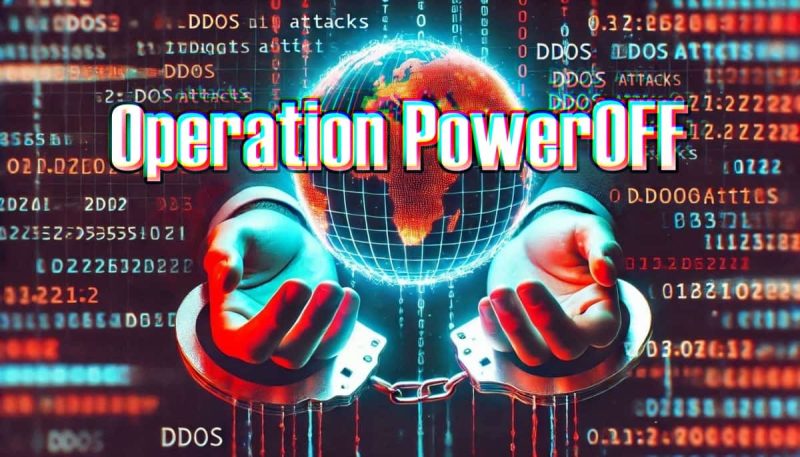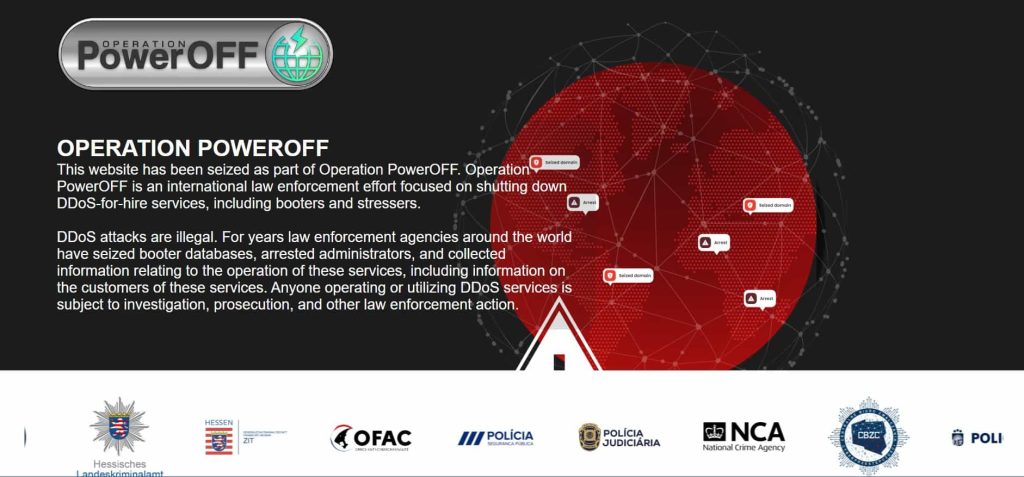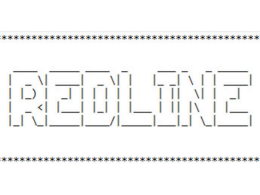SUMMARY
- Global Dismantling of DDoS Platforms: Law enforcement from 15 countries shut down 27 websites offering DDoS attack services as part of Operation PowerOFF.
- Arrests and Identifications: Europol coordinated the arrest of three site administrators in France and Germany and identified over 300 users for further action.
- Offline Platforms: Popular DDoS services like zdstresser.net, orbitalstress.net, and starkstresser.net are now offline, displaying seizure notices.
- Holiday Season Spike: The takedown coincides with a rise in DDoS attacks, often targeting gaming platforms and driven by financial, ideological, or extortion motives.
- Prevention and Outreach: Operation PowerOFF combines takedowns with education and deterrence, including online ads and direct warnings to discourage illegal activities.
Law enforcement agencies from 15 countries have dismantled and seized 27 websites used to sell Distributed Denial-of-Service (DDoS) attack services. The takedown was part of the ongoing Operation PowerOFF, an initiative to shut down cybercrime and platforms facilitating it.
These websites, commonly referred to as ‘booter’ and ‘stresser’ sites, were popular among cybercriminals and hacktivists. By flooding targets with illegal traffic, these platforms enabled attackers to disrupt services, causing financial losses, reputational damage, and outages for their victims.
Arrests!
Coordinated by Europol; the operation targeted everyone involved in this criminal activity, from the administrators running these sites to the users hiring their services. Three administrators were arrested in France and Germany, and over 300 users were identified for further action.
As of now, 27 malicious service providers, including zdstresser.net, orbitalstress.net, and starkstresser.net, have been taken offline and display seizure notices to visitors.
This takedown comes at a time when DDoS attacks, especially against gaming platforms, spike during the holiday season. Motivations for these attacks depend on several factors, including financial gain and extortion to ideological reasons, as seen with groups like Russian Killnet and Anonymous Sudan.
Not Just Takedowns: A Broader Plan of Action
According to Europol’s press release, Operation PowerOFF isn’t just about shutting down websites. It also aims to prevent future attacks through a combination of education and deterrence.
Europol, working with its international partners, has launched an online ad campaign targeting potential offenders. These ads, appearing on Google search results and YouTube, highlight the consequences of DDoS attacks and aim to dissuade individuals from engaging in this illegal activity.
In addition to online outreach, law enforcement agencies are using more traditional methods like warning letters and “knock-and-talks” to reach out to users of these illegal services.
In a comment to Hackread.com, Derek Manky, Chief Security Strategist at Fortinet, emphasizes the need for continued collaboration: “Turning the tide against cybercrime requires a global effort. Public-private partnerships are essential to disrupt large-scale cybercrime operations and create a safer online environment for everyone.”
RELATED TOPICS
- Russian Ransomware Laundering Networks Disrupted
- Criminal Encrypted Messaging Platform MATRIX Taken Down
- Interpol Arrests 5,500 Cybercriminals, Recovers $400 Million
- INTERPOL Arrests 41, Takes Down 22,000 IPs and 59 Servers
- Phishers Impersonating Police Arrested in Multi-Million Euro Scam










